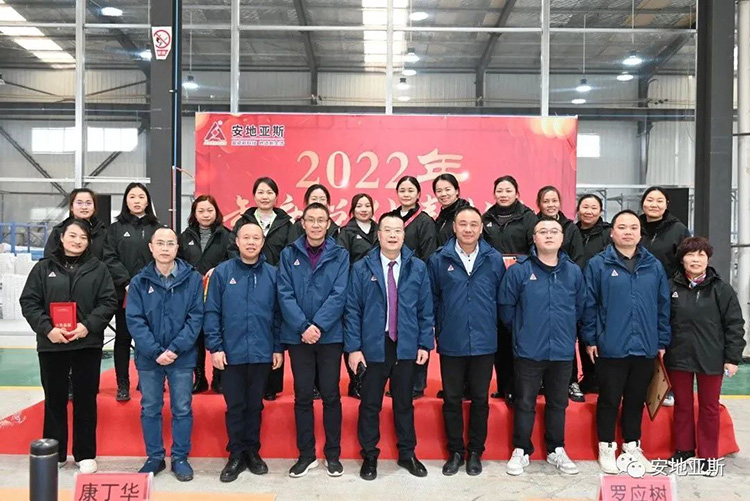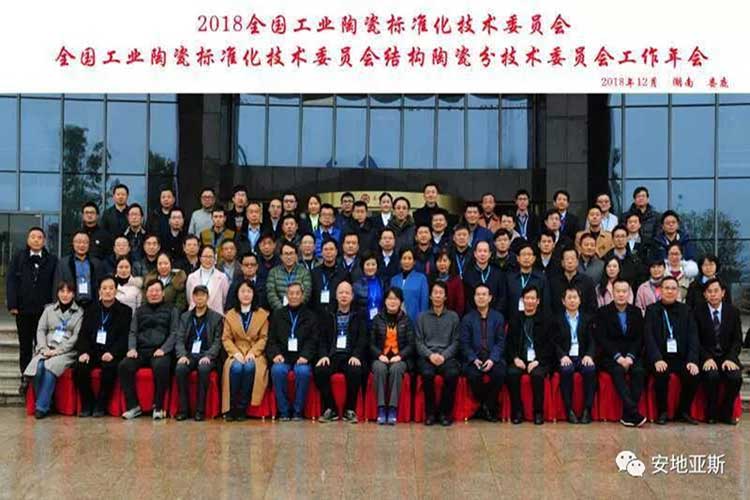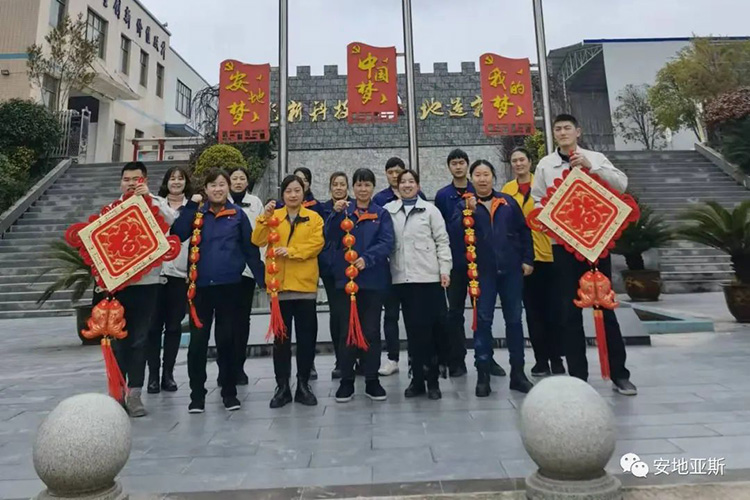To further promote and deepen the integration of industry and education, as well as school enterprise cooperation, fully leverage the important role of enterprises in the cultivation of technical and skilled talents and human resource development, and strengthen the driving and leading demonstration role of industry and education integrated enterprises. In 2022, with years of rich experience, work effectiveness, and performance in school enterprise cooperation, Adias has been recommended by local authorities, strictly evaluated by experts, jointly reviewed by departments, and publicly announced by the government. It is fortunate to be one of the third batch of industry education integration enterprises to be built and cultivated in Hunan Province, and included in the reserve of industry education integration enterprises in Hunan Province. In order to live up to the trust of society and regard the integration of industry and education, school enterprise cooperation, and serving society as one of the core values of enterprise development and progress, we will make the integration of industry and education work detailed and practical. Based on the spirit of relevant documents from superiors and the actual situation of our company, we have formulated the following three-year development plan for industry and education integration and school enterprise cooperation.
1、 Development ideas
In the next three years, the company will further consolidate the achievements of previous school enterprise cooperation, in accordance with the principle of "complementary advantages, resource sharing, mutual benefit, win-win situation, and common development", fully utilize various resources, focus on solving various difficulties and problems that restrict school enterprise cooperation, actively explore a school enterprise deep integration mode of education, and strive to achieve talent sharing, equipment sharing, technology sharing, and school enterprise cultural complementarity The deep cooperation relationship between schools and enterprises in terms of school enterprise management, comprehensively enhancing the school's ability to run schools and the market competitiveness and social influence of enterprises.
2、 Selection of cooperative universities
Universities and vocational colleges with engineering as their main advantageous subject are the preferred targets for our company's school enterprise cooperation. The cooperating universities include Hunan University, Hunan University of Humanities and Technology, Loudi Vocational and Technical College, Loudi Technician College, and so on.
3、 Expected goals
(1) By utilizing established joint laboratories as carriers and through targeted talent cultivation mechanisms, project cooperation, and academic exchange platforms in school enterprise cooperation, we aim to broaden the horizons of talents between enterprises and schools, cultivate the practical application abilities of school students, and enhance the self-development and production capabilities of enterprises.
(2) Through the "new apprenticeship system" of enterprise school dual system and integration of work and learning, with the main content of "recruitment is enrollment, enrollment is upon entering the enterprise, and joint training of enterprise school dual teachers" in school school cooperation, with enterprises as the main training responsibility subject, professional knowledge, operational skills, safety production standards, and professional literacy as the main training content, and through system guarantees such as enterprise school dual teachers and flexible education system, a group of noble moral character and skilled individuals are cultivated, Highly skilled talents who are physically and mentally healthy and urgently needed by enterprises.
(3) Through school enterprise cooperation, we aim to attract more outstanding students who are in line with their needs and majors to enter the company for internships in advance. This will help interns understand the job responsibilities and corporate culture in advance, enhance their sense of identity, increase their retention rate, shorten the training cycle and costs for new employees, and alleviate the shortage of production personnel in the company.
4、 Cooperation content and methods
The cooperation content determined with the cooperative school includes:
Targeted talent training, new apprenticeship training, scientific research and technological development cooperation, academic exchange, talent exchange, etc. With the deepening and need of cooperation, deeper cooperation areas can be expanded.
(1) Targeted training and cooperative education
Following the basic laws of industry education integration and school enterprise cooperation, fully leveraging the leading role of enterprises, establishing a long-term mechanism for order based talent cultivation, and forming a multi-level and multi-form talent cultivation model; The school and enterprise jointly develop and arrange the implementation and arrangement of student internship training plans based on the professional teaching plan and course syllabus requirements of the order class. According to the teaching requirements, the enterprise accepts practical teaching arrangements such as observation, operation, and internship for students in the order class, and cooperates with the teaching plan to provide support in terms of equipment, venue, personnel, and other aspects for students in the order class; Pay attention to the external argumentation of students participating in order training, fully balance and integrate the social adaptability of the training content and the targeted cooperation positions. In addition to meeting the requirements of our company's cooperation positions, avoid students from forming a training content that is too targeted and has too narrow knowledge and abilities, which may lead to difficulties in transferring students after entering the job.
As an off campus training and employment base for universities, enterprises prioritize hiring graduates who cooperate with schools and enterprises under equal conditions; The university invites enterprises to participate in the supply and demand negotiation meeting for graduates on campus every year, prioritizing the transportation of outstanding students who meet the needs of the enterprise.
(2) New apprenticeship training
Mutual recognition, listing, and employee training cooperation between the school and the enterprise: The school utilizes the advantages of continuing education, vocational qualification training, and other educational and teaching resources to provide conditions for the improvement of educational qualifications and skill appraisal of enterprise employees in accordance with the requirements of the enterprise.
The school participates in the cultivation of enterprise talents, establishes employee schools, improves the comprehensive quality of enterprise employees, and provides long-term training for qualified personnel engaged in positions such as Auto CAD, high and low pressure workers, fitters, automation, etc., and issues corresponding national vocational qualification certificates according to the training results. In enterprises, we promote a training model of "recruitment is recruitment, recruitment is recruitment", adopting a dual system of enterprise and school, integrating work and learning. The training responsibility is mainly focused on the enterprise, with professional knowledge, operational skills, safety production standards, and professional literacy as the main training content. Through system guarantees such as enterprise school dual teacher and flexible education system, we cultivate a group of highly skilled talents with noble moral character, exquisite skills, physical and mental health, and urgently needed by the enterprise.
(3) Academic exchange
Borrowing the domestic and international influence of cooperating universities, selectively participate in expert training, further learning, and technical seminars organized and organized by the cooperating universities to promote our company's products, seek new customers or development opportunities, and expand our technological development ideas.
(4) Talent Exchange
1. The university hires middle and senior leaders from relevant majors of enterprises as visiting experts to teach, conduct a series of training lectures, and participate in the education and teaching work of the university.
2. The enterprise hires senior management (leaders) from universities as technical advisors to participate in production and scientific research activities.
(5) Cooperation in scientific research and technology projects
By fully leveraging the advantages of research and development platforms such as university faculty, key laboratories, and research bases, as well as social influence, research cooperation can be carried out from the following three aspects:
1. Sign a strategic cooperation agreement for product development;
2. Joint application for national and provincial level projects;
3. Co-development of new products and overcoming challenges in ongoing production.
(6) Close integration with enterprises, industries, and local governments
Collaborate with industry backbone enterprises and major colleges and universities to jointly carry out the construction of industry talent training standard system. This includes professional teaching standards, construction standards for professional training bases, and evaluation standards for talent cultivation. Accelerate the transformation and integration of advanced ceramic technology standards into talent training standards; Lead the construction of a collaborative development platform with industry characteristics for industry education, allowing industry enterprises and universities to showcase and exchange new technologies and equipment, focusing on the development of new ceramic materials and the new needs for cultivating technical and skilled talents, and enhancing the ability of vocational education services to support industrial transformation and upgrading.
Actively explore school enterprise cooperation models that adapt to local governments, industry associations, enterprise characteristics, local characteristics, and school characteristics, promote industry, academia, and research in a three-dimensional manner, carry out wide-ranging, diversified, and deep-seated cooperation, and achieve joint development of talent training plans by schools, industry associations, enterprises, and local governments, setting up majors and job courses together, jointly writing school enterprise cooperation textbooks, and jointly building a teaching staff, Jointly building practical training bases, building employment platforms for graduates, enhancing educational internships, improving the quality of education, forming a culture of education, and promoting the common development of schools and enterprises.
5、 Organization, Security, and Incentives
(1) In the implementation of relevant cooperation projects, the specific business departments of the company's relevant parties are responsible for coordinating with the universities. Both parties need to determine a contact person, who is responsible for communication and implementation work.
(2) The company shall carry out various types of school enterprise cooperation work in accordance with relevant national laws and regulations as well as the provisions of both schools and enterprises. The implementation shall be carried out within the framework of laws and regulations. In case of disputes and differences, relevant parties shall coordinate or handle them in accordance with laws and regulations; Details need to be agreed on one by one based on the specific cooperation project. According to the invitation from relevant parties of the school and enterprise, the main beneficiaries provide financial support for the cooperation work.
(3) For precision cooperative colleges, incentives will be given in terms of projects, honors, materials, and talent selection based on the effectiveness of industry education integration and school enterprise cooperation.




